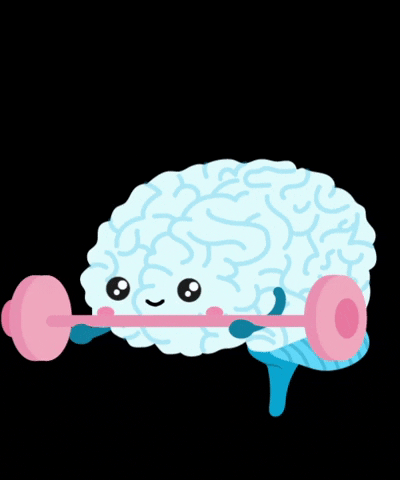Why should I bother learning another language?
I’ve written before about why you should learn the language of the country you live in. But I’ve never written about why you should bother to learn another language even if you don’t live in that country.
Learning a language is useful, it helps your personal wellbeing and sometimes, just sometimes, it can be bloody good fun!
What language should I learn?
Did you know there are approx. 7000 languages spoken in the world today? So I totally understand if you have absolutely no idea where to start on your language learning journey.
Start with your “why” – why do you want to learn another language? From there you can narrow down your language search. After that, it’s pretty much up to you! Download a language learning app or watch some videos in different languages. Decide which one is going to suit you best and away you go!
How can I learn another language?
We’re not in Kansas anymore, Toto.
The Internet is awash with platforms for language learning. There’s no excuse for not having the time anymore. You don’t even have to change out of your PJ’s.
I’m talking apps, YouTube channels, online courses (some of them are free!) and incredible online learning platforms where you can take 1-2-1 lessons at an affordable rate and convenient time for you.
8 reasons you should learn another language.
1. You’ll get smarter.
Learning a language is one of the best ways to stimulate your brain and give it a bit of good loving. When you learn a new language, you are literally wrapping your tongue around thousands of new words and sounds.
You’re constantly challenging your brain as it learns to communicate in a different language system and negotiate the meaning of new words.

It’s the cognitive equivalent of running a marathon. And, much like a marathon, it can serve you well in other areas of your life too. But more on that later…
2. Learning a new language may help prevent the onset of Alzheimer’s.
Learning a language can help improve your memory and, according to one study, the “elasticity” of your brain.
Several other studies have taken place over the years, concluding that being bilingual contributes to “cognitive reserve, which acts to compensate for the effects of accumulated neuropathology.”
To you and me that means that having a second language under your belt could help balance out the build-up of the senile parts of your brain. This helps delay the onset of Alzheimer’s and Dementia by up to four years.
3. It provides academic and professional advantages.
Nothing lets you stand out from the crowd more than knowing a foreign language. Bonus points if you’re fluent. And even bigger bonus points if it’s a high-demand, low-supply language.
There are a ton of studies out there that have researched how learning a language supports academic achievement, most of which link back to language learning and cognitive development (a.k.a. getting smart AF).
And then there are the professional advantages. Knowing a foreign language gives you the edge in applications and interviews, but it also allows you to build better cross-cultural working relationships and demand a higher salary. Globalisation means the demand for multilingual professionals is higher than ever. This is especially true in a country like the UK, where coronavirus coupled together with Brexit has led to a mass exodus of foreign workers.
According to research, around 61-62% of British citizens are monolingual, speaking only English. So get learning because the doors a foreign language can open for you are endless!
4. You get access to an entirely new culture
That means more TV, films, news, books, music, comedy, food, art, memes and whatever else floats your boat.
Living in the country of the language you’re learning is a surefire way to immerse yourself into its culture and gain socio-cultural understanding. But don’t worry if you don’t have that luxury – we’re living in the 21st century, baby! So grab a spoon and dive in, the internet is your friend.
Learning the culture of your chosen foreign language helps bring some context to some of the more obscure words and phrases you might come across. It also helps you to understand how people in the “real world” speak. Learning the “proper” words for please, thank you and goodbye are all well and good until you realise most people don’t use them, ever.
And honestly, I can confirm that understanding comedy and memes in two languages makes your life twice as entertaining.

5. It helps you improve in other areas of your life.
As I said earlier, learning a language is the cognitive equivalent of running a marathon. And when you train to run a marathon, you learn skills that can really serve you in other areas of your life.
Running a marathon teaches you discipline, time management, organisation, quick maths, and how many skittles you can fit in your mouth while running before you throw up (just me on that one? Okay…).
Well, language learning is the same.
It takes discipline to learn a language because once the novelty has worn off and you get to the more complicated parts, you will want to throw everything at the wall and quit. Learning a language can also teach you empathy, patience, communication and self-confidence.
Who doesn’t want all of these things?!
6. Your perspective will change.
When you learn another language, the way you look at the world will change.
I’m sorry, I don’t mean for that to sound all “Gap Yah” but it is true.
Learning a language blows your mind wide open and you start to address challenges and problems with a totally different attitude. The results from a study in German-English bilinguals suggest that knowing a second language “can play an important unconscious role in framing perception.”
I expect this comes from an increase in cultural understanding and empathy as much as it does simply having knowledge of a language, and there are of course many sceptics over this study. But I am living the experience of changing my perspective through learning a language, so I’m naturally inclined to agree.
Plus, the leader of this study, psycholinguist Panos Athanasopoulos, has this beautiful quote about learning another language:
“You can listen to music from only one speaker, or you can listen in stereo … It’s the same with language.”
7. Your brain bloody loves it.
Learning in general is literally feeding your brain. But learning a language? It can actually make your brain grow 🤯. Much like exercising and building muscle, when we make the brain work really hard, especially consistently and over long periods of time, we alter its structure and it gets stronger.
Research shows that becoming bilingual or multilingual makes our brain do all kinds of mental gymnastics. As we learn how and when to use each of our languages and switch between them with more ease, we increase our neuroplasticity (the ability for our brains to change through growth). This neuroplasticity generally tends to decrease the older we get. It’s why kids are so damn good at soaking up languages like sponges. Their brain is more “plastic”.
Although learning a language might be difficult and require a lot of discipline, it’s like a big fancy banquet for your brain.

Just picture your brain now, feasting on all those juicy new words. Omnomnomnom 😋
8. It’s really good fun!
A few years ago, exercise saved my life. Really. I’m not being dramatic.
Old colleagues and sometimes friends would ask me why the hell I spent so much time on a Spin bike or in the gym. When I answered, “I really enjoy it” or “it’s good fun” I was met with looks of scepticism and, sometimes, worry.
But the truth is that I did really, genuinely enjoy it. Exercise gave me focus, discipline and inspiration at a time when it felt like the rest of my life was falling apart. Plus I could physically see the results from learning new things. When I managed to do my first push up, burpee or box jump, I felt moments of pure unadulterated joy and happiness. These were things I once thought of as impossible. It also became my social life and I made friends in that setting that I otherwise wouldn’t have.
Well, learning a language is exactly the same!
Through practice and focus, you can see yourself getting better each time you return to a lesson. The moment you manage to use the Perfekt tense with the correct helping verb in German is really something, I’m telling you! Not only that, but you will likely find a new circle of friends who are on the same journey as you. People who live completely different lives to you but that you managed to join with through one small thing.
So if none of the other reasons convinced you, allow me to suggest simply learning a language for fun!

